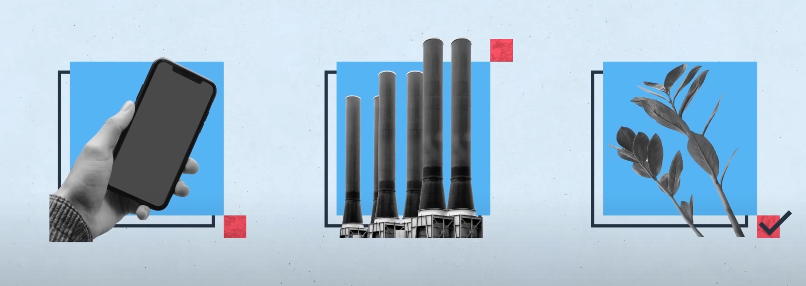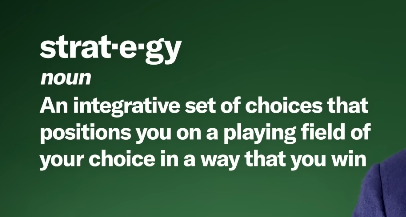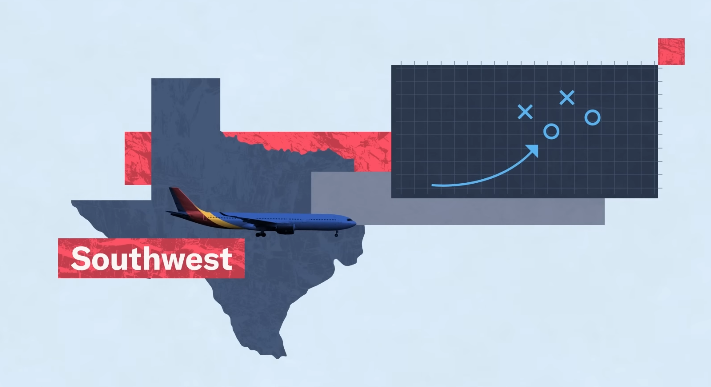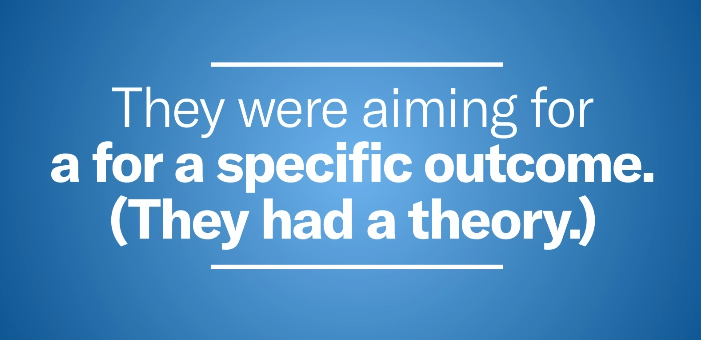Roger Martin interview with HBR on Youtube on Jun 29, 2022
Video Description:
A comprehensive plan—with goals, initiatives, and budgets–is comforting. But starting with a plan is a terrible way to make strategy. Roger Martin, former dean of the Rotman School of Management at the University of Toronto and one of the world’s leading thinkers on strategy, says developing strategy means going outside an organization’s comfort zone and escaping the common traps of strategic planning.
Most strategic planning has nothing to do with strategy. 00:00
- "Planning" has been around a long long time - planning out the activities a person is going to be engaged in
- More recently, there's been a discipline called "Strategy"
- People have put these two together to call something "Strategic Planning"
- Strategy =/= Planning

- Those things are not the same, and putting them together doesn't help. It often has nothing to do with strategy. It tends to be a set of activities a company says it is going to do (Improve Customer Experience, Open a new Plant, Start new talent development program). These things sounds good, but the results won't make the company happy because they didn't have a strategy.

So what is a strategy? 01:00
- A Plan is Not a Strategy
- Strat•e•gy noun
- An integrative set of choices that positions you on a playing field of your choice in a way that you win

- Strategy has a theory:
- states why we should be on a specific playing field
- states how on that playing field how we're going to be better at serving customers on that playing field
- A strategic theory must be coherent and doable, translatable into actions
- Planning doesn't have to have any such coherent
- It typically is what people in a given department want (hiring, new brand, construction/buildings), tends to be a list that has no internal coherence to it, and no specification of a way that it is going to accomplish collectively some goal for the company. (Individualistic by team and not company-wide mission-driven.)
Why do leaders so often focus on planning? 02:08
- Planning is comforting. Typically has to do with resources to be spent: build a plan - hire some people, launch new product. Cost-side of the business. Who controls this? The business does. It is more comfortable because in the cost side, it is something on your side of the table.
- Strategy specifies a competitive outcome you wish to achieve, which involves customers wanting your product that they will buy enough of it to make the profitability that you'd like to make. You don't control customers though. They decide, not you.
- Strategy is saying Here's what we believe will happen. We can't prove or guarantee it, but this is what we want to have happen and believe will happen.
- It is much easier to say "i'll build a factory" or "i'll hire more people" than I will have customers end up liking our offer more than those of competitors. The tricky thing about planning is that while you're planning, chances are that one competitor is out there figuring out how to win (strategizing).
- (side note while listening in to this vide: I believe this is why research is critical - your team must understand the market—your current customers, but also customers that don't know or believe in your company yet. The more you listen and peer into their work, their processes, their needs and decipher what is truly going on and not what they might tell you based on what other products do, the better you can surprise them with something they maybe didn't even think to ask because they are underwater in so much work or just want a smaller issue fixed instead of an asking for a complete overhaul of how things work for them day-to-day)
Let's see a real-world example of strategy beating planning. 04:05
- When Southwest Airlines was small, instead of planning what routes to fly, etc, Southwest had a strategy for winning. At first, it looked irrelevant because it was tiny.

- Their strategy was to be a substitute for Greyhound, a way more convenient way to get around at a price that wasn't extraordinarily much greater than a greyhound bus.
- Everyone else is flying hub and spoke, we'll fly point to point.
- But you only make money while in the air. Hub and spoke meant relying on other flights to arrive.
- They only focused on 737 flights - meaning training and systems could be targeted and not worrying about variations.
- There were no meals on the flights, and none needed due to offering shorter flights.
- Booking was put on the customer (online) instead of travel agents.
- They could run off of substantially lower cost which allowed them to offer substantially lower prices for customers.
- As it worked, it allowed the company to grow and grow.

- The major carriers were not trying to win against one another, but playing to play, playing to participate. No theory of how they could be better than competitors. That worked, until someone (Southwest) came and figured out how to win.
How do I avoid the "planning trap"? 06:33
- Avoid by:
- Recognize that Strategy will have angst and make you nervous. Accept it. You can't "prove" in advance that your strategy will succeed.
- In planning, you can say "all these things are doable" because they're in our control.
- In strategy, you have to say "if our theory is right, about what we can do and how the market will react, this will position us in an excellent way"
- Accept you cannot be perfect on that and know for sure—not being a bad manager, but a great leader. Giving organization a chance to do something great.
- Lay out the logic of your strategy clearly - what would have to be true about our sales, the industry, competition, our customers for this strategy to work. If you do that, you can watch the world unfold. If something in the logic isn't working like you hoped, it will allow you to tweak your strategy. Strategy is a journey. What you want to have is a mechanism for tweaking it and toning it and refining it so that it gets better and better as you go along.
- Keep it short, ideally written out on a single page. Not letting it get over complicated. Here's where we're choosing to play, how we're choosing to win, here are the capabilities we need to have in place, here are the management systems, and that's why it is going to achieve this goal, this aspiration that we have.
==Lay out the logic, go do it, and watch & tweak.==
It's a process that is more worry-making, more angst-making—but if you plan, that's a way to guarantee losing. If you do strategy, it gives you the best possible chance of winning.